Scabies
At Cumberland Skin, one of our dermatologists can diagnose scabies through clinical examination or skin scrapings and provide an individualized treatment plan. It is crucial to schedule an appointment with one of our trusted skin experts to gain relief from symptoms and prevent the spread of the infestation.
Examples of Scabies
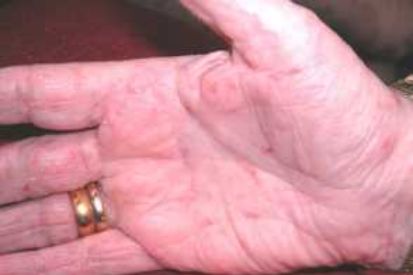

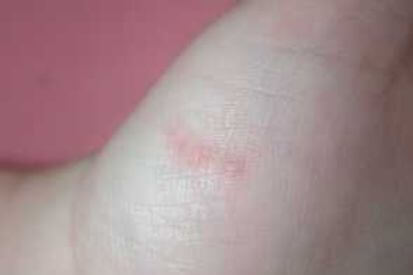
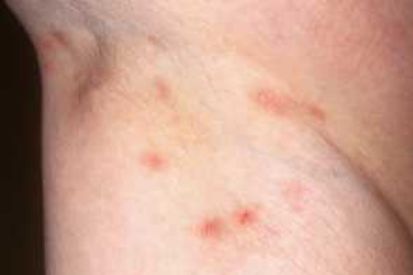
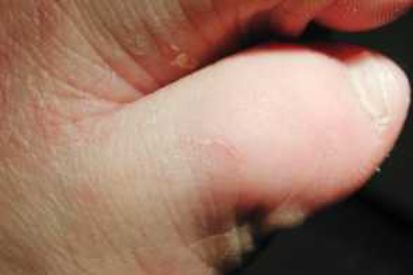
What are the Symptoms of Scabies?
- Intense itching, especially at night.
- As the scabies mites burrow into the skin and lay eggs, they cause a rash that appears as tiny red bumps or pimples.
- The rash may develop into more crusty or scaly areas.
- The itching is a result of the body's allergic reaction to the presence of the mites and their waste.
Causes of Scabies
- Scabies is caused by an infestation of the Sarcoptes scabiei mite.
- These tiny mites are microscopic and cannot be seen by the naked eye.
- The mites burrow into the outer layers of human skin to live and lay their eggs, triggering an allergic reaction in the host.
- Scabies is highly contagious and can spread through close personal contact with an infected person.
How to Prevent Scabies
If someone in close contact has scabies, seek prompt treatment for everyone involved to prevent the mites from spreading.
Scabies FAQs
Scabies is a skin infestation caused by tiny mites. It's often transmitted through close personal contact, and you may have picked it up from someone who has scabies.
Yes, scabies is contagious. It can spread through prolonged skin-to-skin contact. Prompt treatment is crucial to prevent further transmission to family members or close contacts.
Dermatologists often diagnose scabies by examining the rash and may use a microscope to identify the mites, eggs, or fecal matter. Clinical expertise allows them to distinguish scabies from other skin conditions.
Absolutely. Dermatologists may recommend anti-itch creams or antihistamines to alleviate itching during the treatment period. They can provide guidance on managing discomfort and promoting healing.
Dermatologists will advise on suitable skincare products during scabies treatment. It's crucial to inform them about any products you plan to use to ensure they won't interfere with the prescribed medications or exacerbate the condition.
How to Treat Scabies
- Topical Medication to eliminate the mites.
- Oral Ivermectin on select cases.
- Oral Antihistamines to reduce itching.
- Topical Steroids to reduce itching.
- Systemic Steroids in severe cases to reduce itching.
Related Blog Posts

- General Dermatology
- Skin Exams
Preparing for your first dermatology appointment is important because it ensures everything goes as smoothly as possible and that your doctor is up-to-date on the status of your overall health and wellbeing. Here are our expert tips.
Read More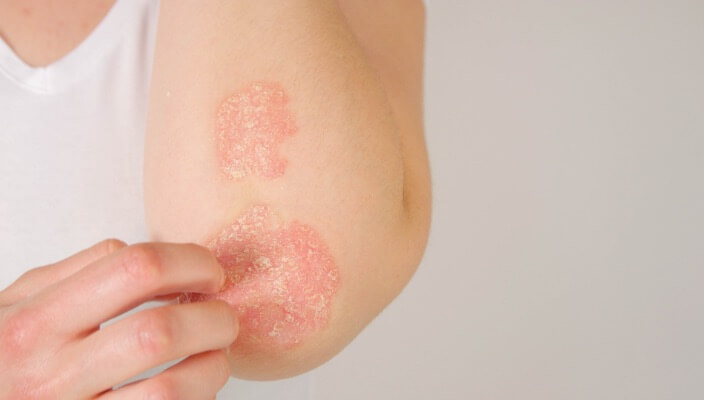
- General Dermatology
- Chronic Skin Conditions
Learn the differences between dry skin, eczema, and psoriasis, their distinct characteristics, and potential triggers. Gain valuable insights into identifying symptoms and seeking appropriate treatment to effectively managing these common skin conditions.
Read More
- Skin Care
- Cosmetic Treatments
Unlock the secrets to achieving radiant, glowing skin. Explore expert tips and skincare routines tailored to nourish and revitalize your complexion, empowering you to embrace a luminous and youthful appearance.
Read MoreFeatured Products
Check your local office for current stock!
Check your local office for current stock!


